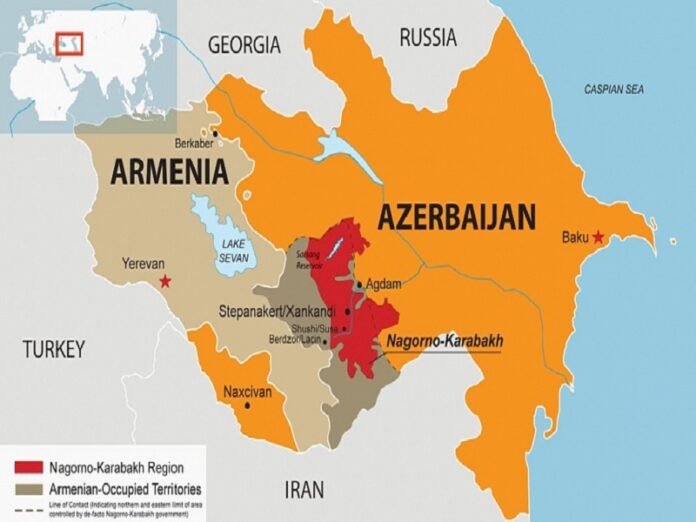Russian presidential aide and head of the Istanbul delegation Vladimir Medinsky sparked Azerbaijan’s ire when he recently compared Ukraine to Karabakh in an interview with RT. The gist of his extended comments was that freezing the conflict with a truce as opposed to an actual peace treaty in which the disputed regions are recognized as Russian could lead to NATO pushing Ukraine to wage another war over them. His words deserve further elaboration given how many were confused by them.
For starters, Russian Foreign Ministry spokeswoman reaffirmed that Russia has always recognized Karabakh as Azerbaijani so Medinsky’s comparison is imperfect since Russia recognizes the entirety of the disputed regions with Ukraine as Russian, not Ukrainian. Nevertheless, having clarified that, the second point is that Ukraine’s refusal to recognize the disputed regions as Russian could indeed lead to the Karabakh scenario of another war being fought over them, which Russia wants to avert.
It’s here where the third point comes into play, namely the influence of foreign actors in the Second Karabakh War and another hypothetical conflict between Russia and Ukraine. NATO-member Turkiye played a key role in helping Azerbaijan, though some of the bloc’s European members and even the US to an extent politicized Azerbaijan’s victory to put more pressure on it. In the Ukrainian scenario, most of the bloc is expected to back Kiev to the hilt, which threatens a hot war with Russia by miscalculation.
The fourth point builds upon the preceding one and relates to Medinsky’s prediction that “After some time, Ukraine, together with NATO, with its allies, will join NATO, try to win it back, and that will be the end of the planet, that will be a nuclear war.” In other words, he takes for granted that a hypothetical Second Ukrainian Conflict would inevitably lead to a hot NATO-Russian war, with the innuendo being that NATO might initiate hostilities against Russia and thus force the latter to resort to nukes in self-defense.
And finally, the last point is that unresolved conflicts like Karabakh or what Ukraine could turn into in the truce scenario tend to fester and lead to more conflicts, ergo the need to sustainably resolve them. That said, in the second hypothetical case at least, some forces might want that to happen. Frozen conflicts cynically enable them to divide-and-rule the warring parties while also leaving open the possibility of placing maximum pressure on one of them in the future. Russia knows this and wants to avert it.
Reflecting on this insight, while it’s understandable that Azerbaijan would protest Medinsky’s description of Karabakh as a disputed region when Armenia itself didn’t officially lay claim to it, he meant to inflict no harm to bilateral ties and only sought to use that example to make the aforesaid points. Karabakh is fresh in many Western policymakers’ minds so he wanted to impress upon them that something similar, but on a much larger and more dangerous scale, could unfold if they don’t force Ukraine into peace.
Therein lies the crux of the problem: the West isn’t interested in coercing Ukraine into making more concessions to Russia and instead wants to freeze the conflict, which would allow Ukraine to rotate its troops, rearm, and eventually be in a comparatively better position to reinitiate hostilities. In that scenario, which Russia has warned about, NATO might get directly involved, perhaps first through so-called “non-combat deployments” to Ukraine, and then everything could spiral out of control after that.
